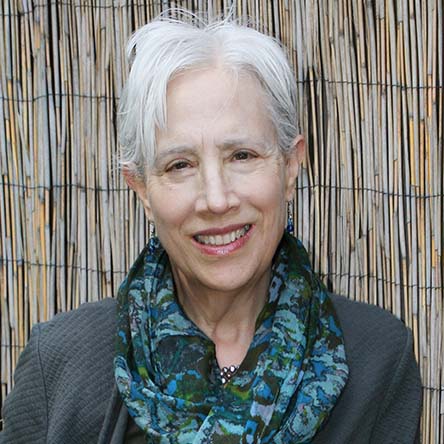Review: Inside the Mind of Timothy Leary by George H. Litwin PhD
A fun and fascinating read on early psychedelic research
n
u201cMy book about Tim is up on Amazon. I hope youu2019ll read it and if you like it tell some other people about it. He was an important person in my life and it was an important time. Psychedelics took on a different meaning later and I want people to know there was there was more to it than the party.u201d George said toward the end of our recent phone call.
n
George Litwin is my friend and a significant mentor in my life. So I was very excited to read this book about his friend u00a0and mentor Timothy Leary. As you might imagine, I had heard some of the stories before, but I was not prepared for the totality of the experience this book relates.
n
Inside the Mind of Timothy Leary is a personal history of the scientific and science-adjacent exploration of psychedelic drugs, psilocybin, mescalin, LSD and DMT. It is not an academic treatise, though there are many cited resources should you wish to continue reading. It is a memoir, the u00a0biographical stories of the high profile psychologists and their research into substances which could produce a mystical experience.
n
Dr. Leary was George Litwinu2019s advisor as he pursued his doctorate at Harvard. Leary was originally opposed to Litwinu2019s interest in continuing his Michigan research in the potential for mental healthcare uses of mescalin. However, after a sabbatical in Mexico where Dr. Leary experienced an indigenous healeru2019s work with mushrooms containing psilocybin, he changed his position on the mescalin research and began research on psilocybin himself.
n
Litwin carefully explains the turmoil of the early 1960s at Harvard where BF Skinneru2019s behaviorism was in conflict with the Human Potential Movement and the more social forms of psychology. He also paints the conflict in the 60s culture between those who wished for more openness and freedom and those who argued for greater control in society.
n
Into this milieux came Drs. Tomothy Leary, and Richard Alpert (later Baba Ram Das). They were joined by Aldous Huxley, Alan Watts, Beat writers Allen Ginsberg and William Burroughs, jazz musicians Maynard Ferguson, Paul Desmond, and Charles Mingus and a host of other characters. Litwin was in the room experiencing these substances and relates his and othersu2019 experience. It makes a fun and fascinating read.
n
Some of the experiments were more classically scientific than others, but all indicated that these substances could briefly expand Consciousness in the same way that religious mystics of many cultures experienced after long meditative practices. What was different was that the religious mystics have cont9inuallly access to the transcendent experience (enlightenment) through their meditative practices. It is no surprise u00a0that many of these profiled researchers, Ram Das, Watts and Litwin himself went on to explore Easter meditative traditions.
n
Psychedelic drugs are being explored again for therapeutic uses helping to soften the ego such that destructive mindsets and behavior can be productively self-altered. This engaging history of the beginnings of research should be read by those considering Therapy or those interested in this period of history.
n
I also think that this book together with the resources identified by Dr. Litwin would be an excellent reading course for those who aspire to transformational leadership. The transformational leader must transcend the bounds of ego and old culture and bring unity to the change they lead. Understanding the mystical experience these researchers pursued is a step along that path.
n
“,”tablet”:”
A fun and fascinating read on early psychedelic research
n
u201cMy book about Tim is up on Amazon. I hope youu2019ll read it and if you like it tell some other people about it. He was an important person in my life and it was an important time. Psychedelics took on a different meaning later and I want people to know there was there was more to it than the party.u201d George said toward the end of our recent phone call.
n
George Litwin is my friend and a significant mentor in my life. So I was very excited to read this book about his friend and mentor Timothy Leary. As you might imagine, I had heard some of the stories before, but I was not prepared for the totality of the experience this book relates.
n
Inside the Mind of Timothy Leary is a personal history of the scientific and science-adjacent exploration of psychedelic drugs, psilocybin, mescalin, LSD and DMT. It is not an academic treatise, though there are many cited resources should you wish to continue reading. It is a memoir, the biographical stories of the high profile psychologists and their research into substances which could produce a mystical experience.
n
Dr. Leary was George Litwinu2019s advisor as he pursued his doctorate at Harvard. Leary was originally opposed to Litwinu2019s interest in continuing his Michigan research in the potential for mental healthcare uses of mescalin. However, after a sabbatical in Mexico where Dr. Leary experienced an indigenous healeru2019s work with mushrooms containing psilocybin, he changed his position on the mescalin research and began research on psilocybin himself.
n
Litwin carefully explains the turmoil of the early 1960s at Harvard where BF Skinneru2019s behaviorism was in conflict with the Human Potential Movement and the more social forms of psychology. He also paints the conflict in the 60s culture between those who wished for more openness and freedom and those who argued for greater control in society.
n
Into this milieux came Drs. Tomothy Leary, and Richard Alpert (later Baba Ram Das). They were joined by Aldous Huxley, Alan Watts, Beat writers Allen Ginsberg and William Burroughs, jazz musicians Maynard Ferguson, Paul Desmond, and Charles Mingus and a host of other characters. Litwin was in the room experiencing these substances and relates his and othersu2019 experience. It makes a fun and fascinating read.
n
Some of the experiments were more classically scientific than others, but all indicated that these substances could briefly expand consciousness in the same way that religious mystics of many cultures experienced after long meditative practices. What was different was that the religious mystics have cont9inuallly access to the transcendent experience (enlightenment) through their meditative practices. It is no surprise that many of these profiled researchers, Ram Das, Watts and Litwin himself went on to explore Easter meditative traditions.
n
Psychedelic drugs are being explored again for therapeutic uses helping to soften the ego such that destructive mindsets and behavior can be productively self-altered. This engaging history of the beginnings of research should be read by those considering therapy or those interested in this period of history.
n
I also think that this book together with the resources identified by Dr. Litwin would be an excellent reading course for those who aspire to transformational leadership. The transformational leader must transcend the bounds of ego and old culture and bring unity to the change they lead. Understanding the mystical experience these researchers pursued is a step along that path.
n
“}},”slug”:”et_pb_text”}” data-et-multi-view-load-tablet-hidden=”true”>
A fun and fascinating read on early psychedelic research
“My book about Tim is up on Amazon. I hope you’ll read it and if you like it tell some other people about it. He was an important person in my life and it was an important time. Psychedelics took on a different meaning later and I want people to know there was there was more to it than the party.” George said toward the end of our recent phone call.
George Litwin is my friend and a significant mentor in my life. So I was very excited to read this book about his friend and mentor Timothy Leary. As you might imagine, I had heard some of the stories before, but I was not prepared for the totality of the experience this book relates.
Inside the Mind of Timothy Leary is a personal history of the scientific and science-adjacent exploration of psychedelic drugs, psilocybin, mescalin, LSD and DMT. It is not an academic treatise, though there are many cited resources should you wish to continue reading. It is a memoir, the biographical stories of the high profile psychologists and their research into substances which could produce a mystical experience.
Dr. Leary was George Litwin’s advisor as he pursued his doctorate at Harvard. Leary was originally opposed to Litwin’s interest in continuing his Michigan research in the potential for mental healthcare uses of mescalin. However, after a sabbatical in Mexico where Dr. Leary experienced an indigenous healer’s work with mushrooms containing psilocybin, he changed his position on the mescalin research and began research on psilocybin himself.
Litwin carefully explains the turmoil of the early 1960s at Harvard where BF Skinner’s behaviorism was in conflict with the Human Potential Movement and the more social forms of psychology. He also paints the conflict in the 60s culture between those who wished for more openness and freedom and those who argued for greater control in society.
Into this milieux came Drs. Tomothy Leary, and Richard Alpert (later Baba Ram Das). They were joined by Aldous Huxley, Alan Watts, Beat writers Allen Ginsberg and William Burroughs, jazz musicians Maynard Ferguson, Paul Desmond, and Charles Mingus and a host of other characters. Litwin was in the room experiencing these substances and relates his and others’ experience. It makes a fun and fascinating read.
Some of the experiments were more classically scientific than others, but all indicated that these substances could briefly expand consciousness in the same way that religious mystics of many cultures experienced after long meditative practices. What was different was that the religious mystics have cont9inuallly access to the transcendent experience (enlightenment) through their meditative practices. It is no surprise that many of these profiled researchers, Ram Das, Watts and Litwin himself went on to explore Easter meditative traditions.
Psychedelic drugs are being explored again for therapeutic uses helping to soften the ego such that destructive mindsets and behavior can be productively self-altered. This engaging history of the beginnings of research should be read by those considering therapy or those interested in this period of history.
I also think that this book together with the resources identified by Dr. Litwin would be an excellent reading course for those who aspire to transformational leadership. The transformational leader must transcend the bounds of ego and old culture and bring unity to the change they lead. Understanding the mystical experience these researchers pursued is a step along that path.
The post Review: Inside the Mind of Timothy Leary by George H. Litwin PhD appeared first on Wisdom from Unusual Places.
Originally Published on https://wisdomfromunusualplaces.com/blog/

























